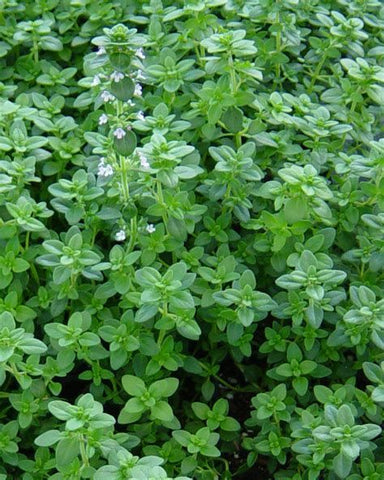
Evergreen Remedies
Share
Over the past couple of months I've been really appreciating the power of evergreen herbal remedies!
By evergreen herbs I mean, herbs that are available growing year round! Their cells are able to withstand frost and continue photosynthesising during the darker times of year. They all contain essential oils and smell amazing!
These herbs are very common, simple to use and available year round! so what better herbs could there be to get to know and use in your own home?
Which herbs am I talking about? Thyme, sage, rosemary & pine are some of my favourites and here's why...
THYME
Thyme is easy to grow in your garden, especially if you've got a slightly sandy soil and some shelter. You can also usually buy it fresh from the supermarket. Use the leaves and stems (if you want to.)
You probably know that it's a great herb to cook with because it goes well with meat, roasted veg or in soups & stews. That suggests it's good for supporting digestion and can help support a sluggish digestion and off-set gas in the system.
It's my favourite herbal remedy for coughs and will support the whole spectrum of different types of coughs making it a good all rounder here. It's also antibacterial and antiviral, which makes it a good remedy to take during colds, flues and viruses.
Use thyme as a tea, which goes well with thyme, lemon, honey and sage. Or make a herbal steam inhalation from it to clear your respiratory system.
* With all of these herbs I recommend to cover them while brewing the tea for 10-15mins to keep some of the essential oils in and make a better quality brew.
SAGE
Similar to thyme, this is quite easy to grow in your garden and can be bought fresh from the supermarket. Use the leaves.
Because many evergreens have some similar properties and contain volatile oils, they can often help with similar things, but in slightly different ways. Therefore, sage is also a helpful herb for digestion and can be used in cooking to stimulate appetite and support the digestive process.
It's my favourite herb for the throat and mouth. It's my go to herb for sore throats, tonsillitis and mouth inflammation. It's also antimicrobial, so similar to sage a good herb for using during colds and flues and it's also very warming.
Sage is often used to decrease sweating and especially during menopause for reducing hot flashes and night sweats when used over time.
Use sage as a tea, which combines well with lemon, honey and sage, or as a gargle for mouth infections or sore throats. In cooking or as a steam inhalation.
ROSEMARY
This is a very special herb because it's the one I'm named after and that I've had the longest relationship with! - it's one of the first herbs I got to know..
Grow it in your garden, pinch some from a park or get it fresh in the supermarket. This is another really common garden herb! Use the needle like leaves.
Again, you probably know about it's use in cooking and therefore it helps support digestion, but also if your digestion is effected by stress or tension it can help to calm the nerves allowing better digestion. it's antioxidant and gently supports the liver, which makes it a great hangover helper herb too. The bitterness makes it a good general digestive tonic!
It's warming and stimulating and helps increase blood to the brain to help improve memory, hair health, headaches, focus and mood.
It can also be used externally for cold, tired and achy muscles.
I like to make fresh rosemary tea in the afternoon when my brain and energy start to flag a little bit, or if I'm doing something in the evening that requires brain power, or when I dont want to drink tea or coffee becuase they might make me anxious, but still need a boost.. it's also great to use in baths (make a strong tea and pour it in to your bath) or as an infused oil or balm for tired achy muscle, bones or feet after a long day. I prefer to chop the leaves up a bit to get a good strong brew.
PINE
By pine I mean any kind of pine tree because they're all medicinal. In Scotland we mainly have scots pine and you can tell a pine from other evergreen trees because the needles are in groups bound with a tiny papery sheath. Other evergreen trees have the needles connected directly connected to branches. It's the needles that are used.
Pine has become quite popular recently because the needles are rich in vitamin C, it's also antimicrobial and can help support healthy immune function.
It has an affinity to the respiratory system, so can be supportive for lung health, coughs and during infections. Also, another great reason to go for a walk in the pine forest and breathe deeply!
You can make a simple tea from pine needles either by chopping them up, pouring freshly boiled water over and then covering and steeping for 10-15 mins, or by simmering them gently for the same amount of time on the hob to extract some of the deeper properties.
There you have it, 4 new botanical evergreen allies to help you get through the end of winter! They will always be there for you :)
I was recently staying somewhere without herbs and started to feel a sore throat and cold coming on, so I went to the nearby shop and bought; sage, thyme, garlic and lemons. I also foraged some rosehips and pine needles on the way back. Herbal medicine doesn’t need to be complex and some of the most powerful remedies are quite common and easy to get hold of!




